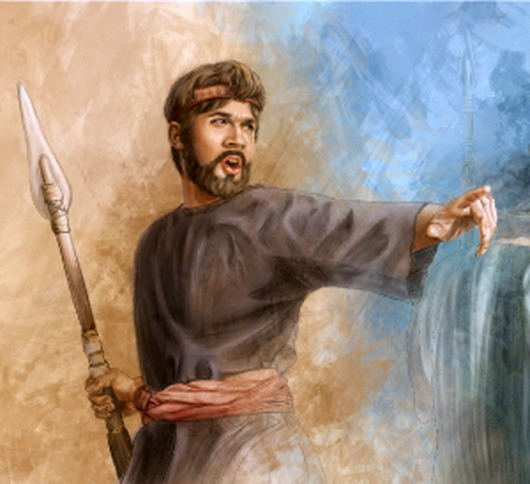Numbers 25:10 And יהוה spoke to Moses saying, 11 Phinehas, the son of Eleazar, the son of Aaron the priest, has turned away את־ My wrath from the Children of Israel, because while he was zealous for את־ My sake among them, so I did not consume את־ Children of Israel in My jealousy. C-MATS
Question: How did Phinehas turn “away את־ wrath”? The righteous act by Phinehas the Levite actually became responsible for turning away יהוה Father’s zealous את wrath from את Children of Israel and goes on to say that Phinehas, “he was zealous for את־ My sake among them.” As a reward to Phinehas יהוה Father enters into a את Covenant of Peace and a Covenant of Everlasting Priesthood with him and his descendants forever. It is interesting to note that in 1 Chronicles 6:4-14 in listing the priestly descendants of Phinehas all of them have a Aleph/Tav את Symbol in front of their name signifying the את Covenant of Peace with יהוה Father and ends only with their going into captivity into Babylon. C-MATS
Question: What does “in my jealousy” mean in verse 11? In this context, the word jealousy refers to a display of anger that results in vengeance. “Jealousy” is a person’s reaction when he finds that another is taking something that is rightly his. יהוה is “jealous” when the Israelites served idols, because they transfer their allegiance from Him to something else. The Torah indicates that even when drastic action is necessary, as it was in the case of Phinehas, the zealot should regard himself as among the people; he should act out of love rather than anger and hatred. Chumash
Question: How did David describe Phinehas?Psalms 106:28 They joined themselves also to Baal-peor and ate the sacrifices made to the dead. 29 So they provoked Him to anger with their doings; and the plague broke in upon them. 30 Then stood up Phinehas and executed judgment; and so the plague was stayed. 31 And that was reckoned to him for righteousness, to all generations forevermore. C-MATS

